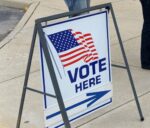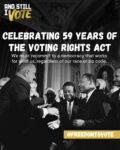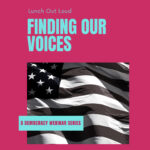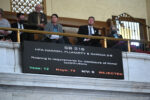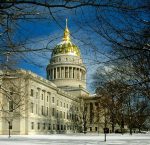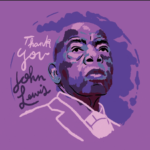- Like
- Digg
- Del
- Tumblr
- VKontakte
- Buffer
- Love This
- Odnoklassniki
- Meneame
- Blogger
- Amazon
- Yahoo Mail
- Gmail
- AOL
- Newsvine
- HackerNews
- Evernote
- MySpace
- Mail.ru
- Viadeo
- Line
- Comments
- Yummly
- SMS
- Viber
- Telegram
- Subscribe
- Skype
- Facebook Messenger
- Kakao
- LiveJournal
- Yammer
- Edgar
- Fintel
- Mix
- Instapaper
- Copy Link
 |
|
|||||||||
WV Senate to Consider Raising Campaign Contribution LimitsOn Monday, members of the Senate Judiciary Committee are expected to take up SB 408, which would raise campaign contributions limits to candidates and political action committees (PACs) to the current federal limit of $2,700 per election (more than double West Virginia’s current limit of $1,000). The bill would also allow political party committees to make coordinated expenditures of up to $20,000 “in connection with the general election campaign of candidates for statewide office, the Legislature, or any county office. Although we understand the coordination provisions may be dropped in favor of a bill that simply increases contribution limits. While modest compared to last year’s proposal to eliminate all contribution limits and allow direct corporate contributions to candidates, SB 408 is problematic for a number of reasons. First, in addition to the provisions mentioned above, the bill requires the Secretary of State to establish and maintain a searchable, online database of contribution and expenditure data submitted by candidates and political committees. Although this is something we support, it’s an unfair burden to place on the Secretary of State’s office unless candidates are also required to file their disclosure reports online or by some other electronic means that can easily be imported into the database. A bill passed by the House, HB 2588, would remedy the need for an electronic reporting mandate and mechanism. Second, and more importantly, increasing contribution limits is taking us in the wrong direction. There’s too much money in our elections already being contributed by too few people. Raising the amount that contributors can give further amplifies the influence and voices of large donors, while further drowning out those of small donors and those who can’t afford to contribute to political campaigns. Finally, the bill completely ignores the biggest problem with money in politics — secret money. Unfortunately, current disclosure laws in West Virginia allow contributors to hide their identity while influencing our elections. Consideration of SB 408 comes as allied Senators and Delegates are preparing to introduce a bill that would require any entity that spends more than $1,000 in a calendar year to disclose its donors to the Secretary of State’s office. The bill would also close the “covered transfers” loophole, which allows large donors to contribute anonymously to secret money groups. Please contact members of the Senate Judiciary Committee and your legislators and tell them to vote “No” on SB 408 and urge your members to do the same. Allowing more money into our elections without increasing disclosure is self-serving and keeps West Virginians in the dark about who is trying to influence their votes. As West Virginians, we stand up for what we believe in. It’s time we made the millionaires and corporations writing six-figure checks to influence our elections to do the same. |
||||||||||

